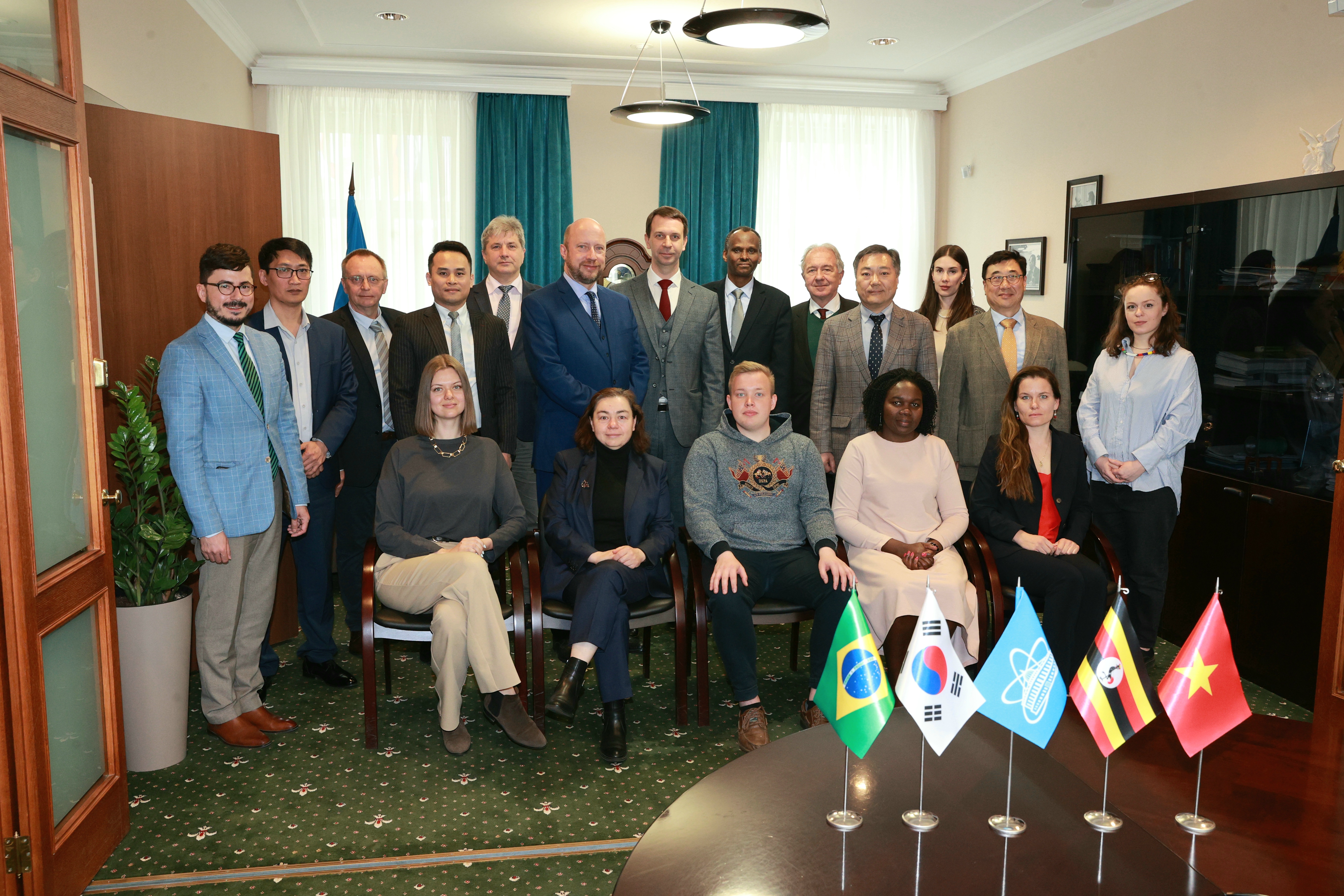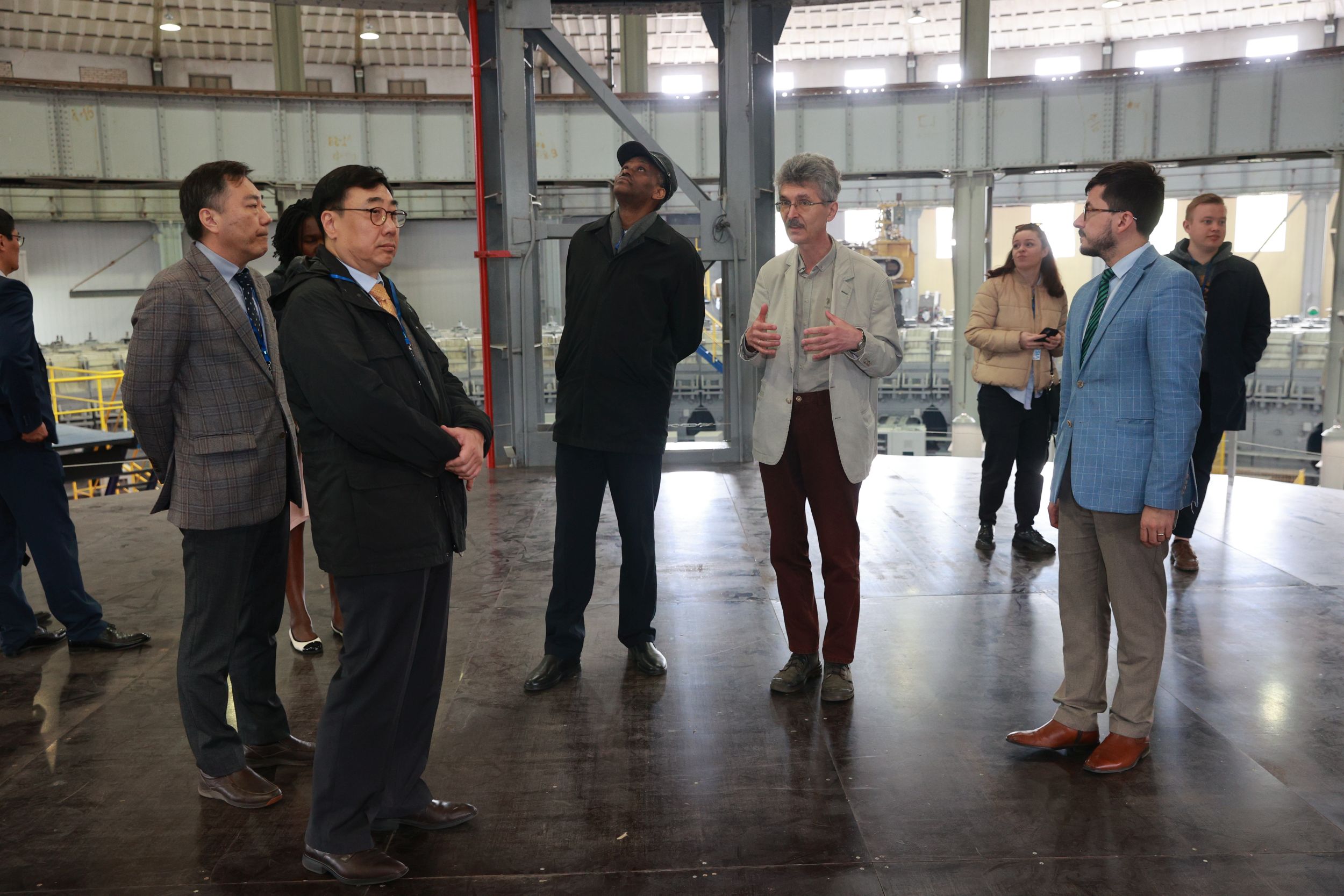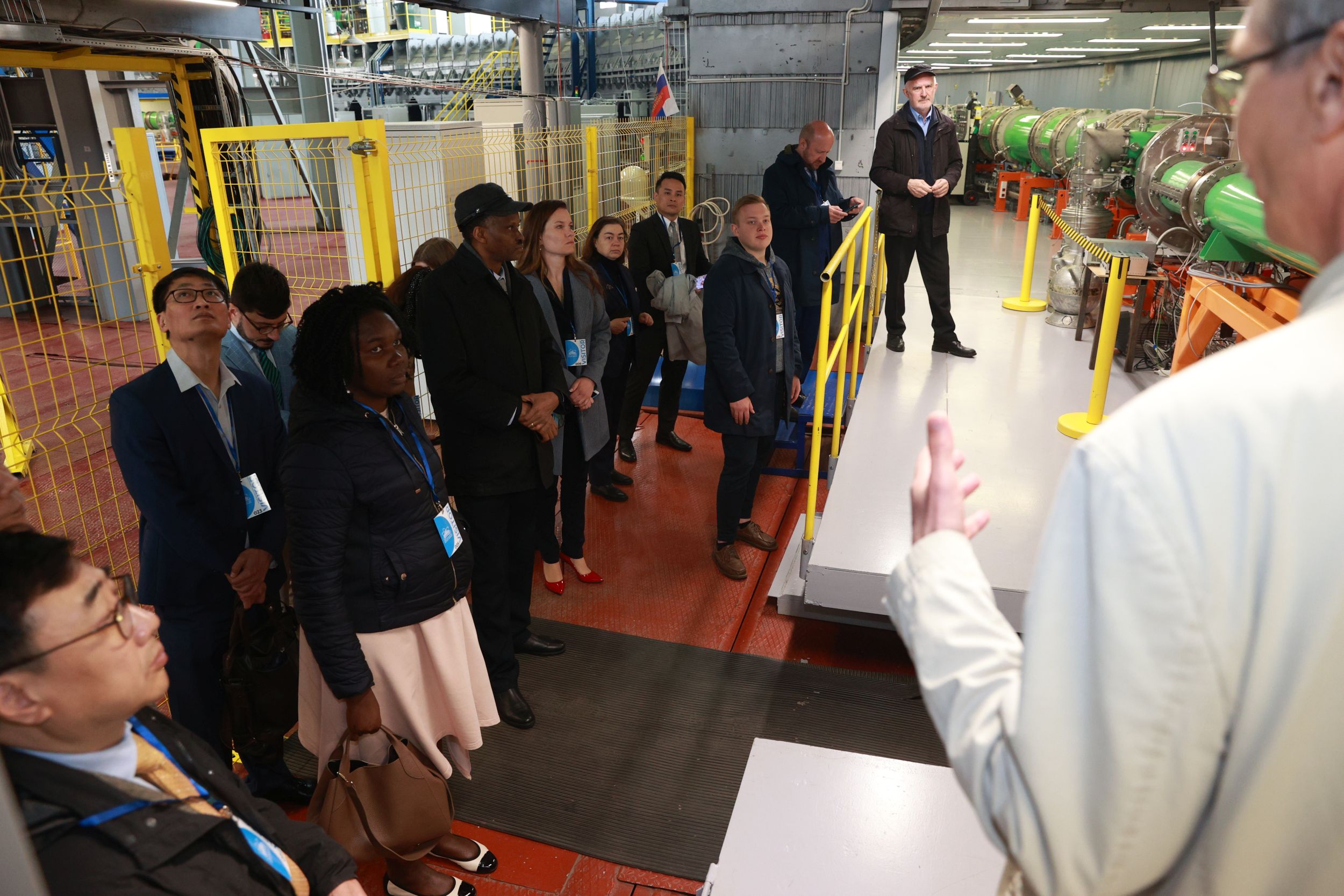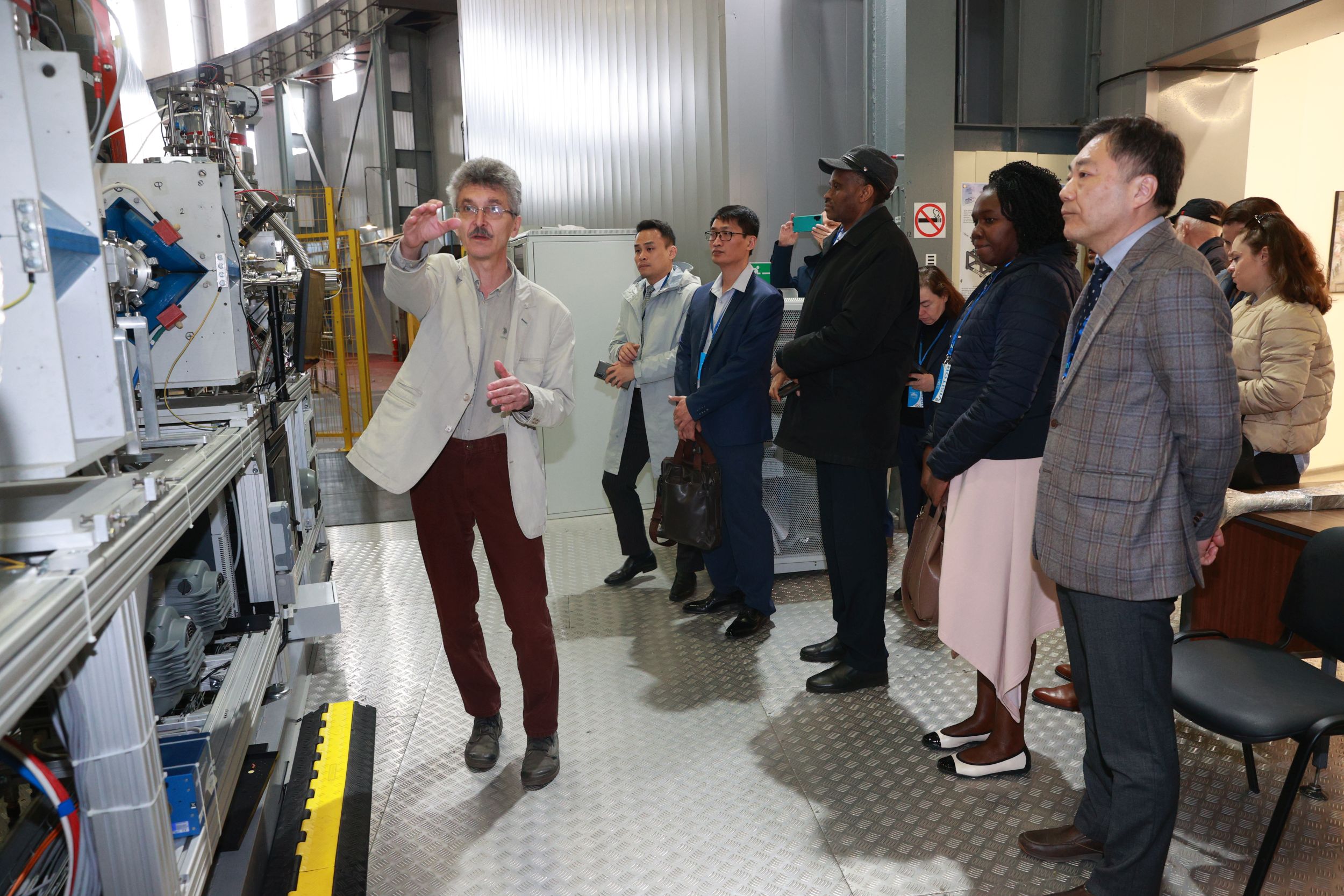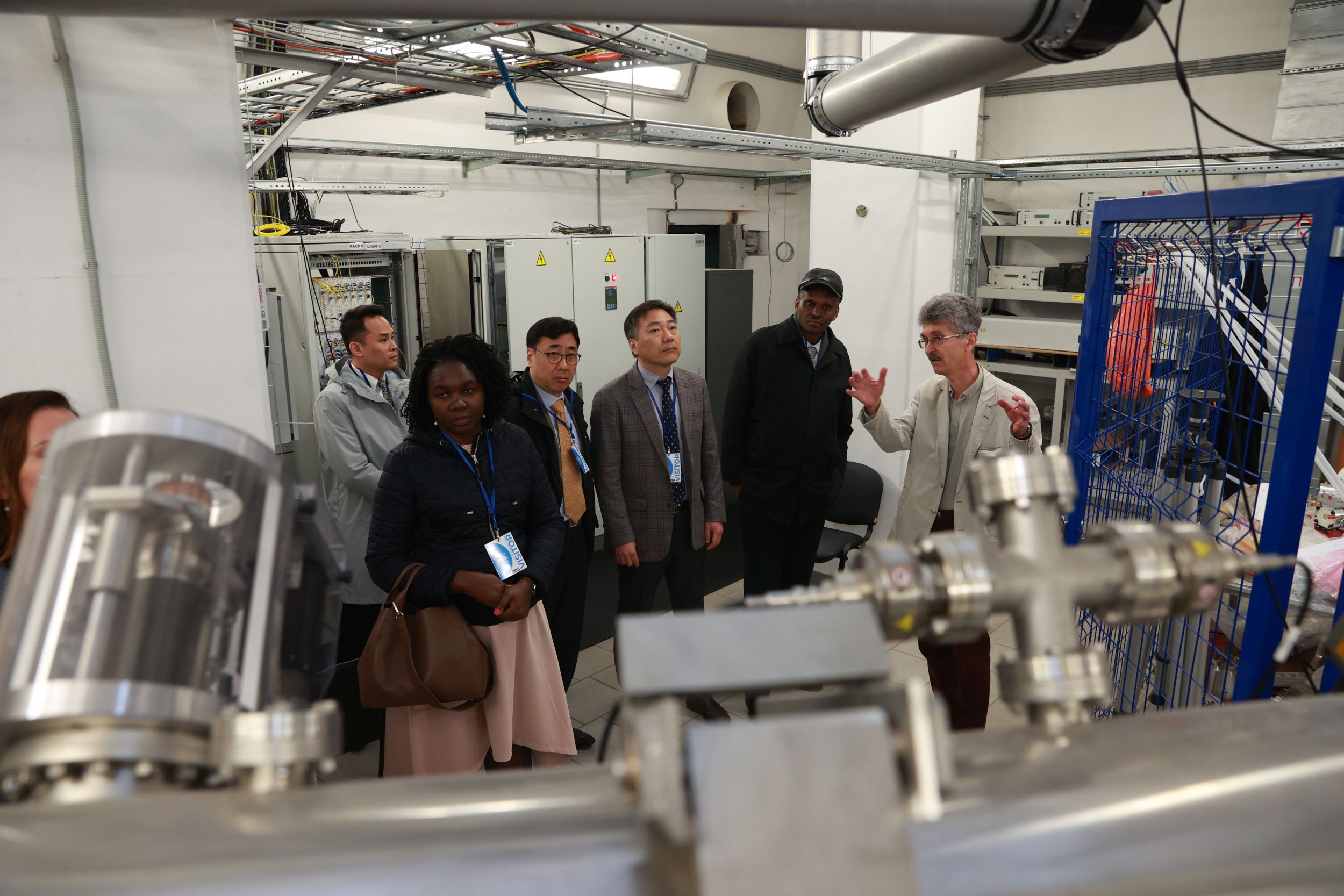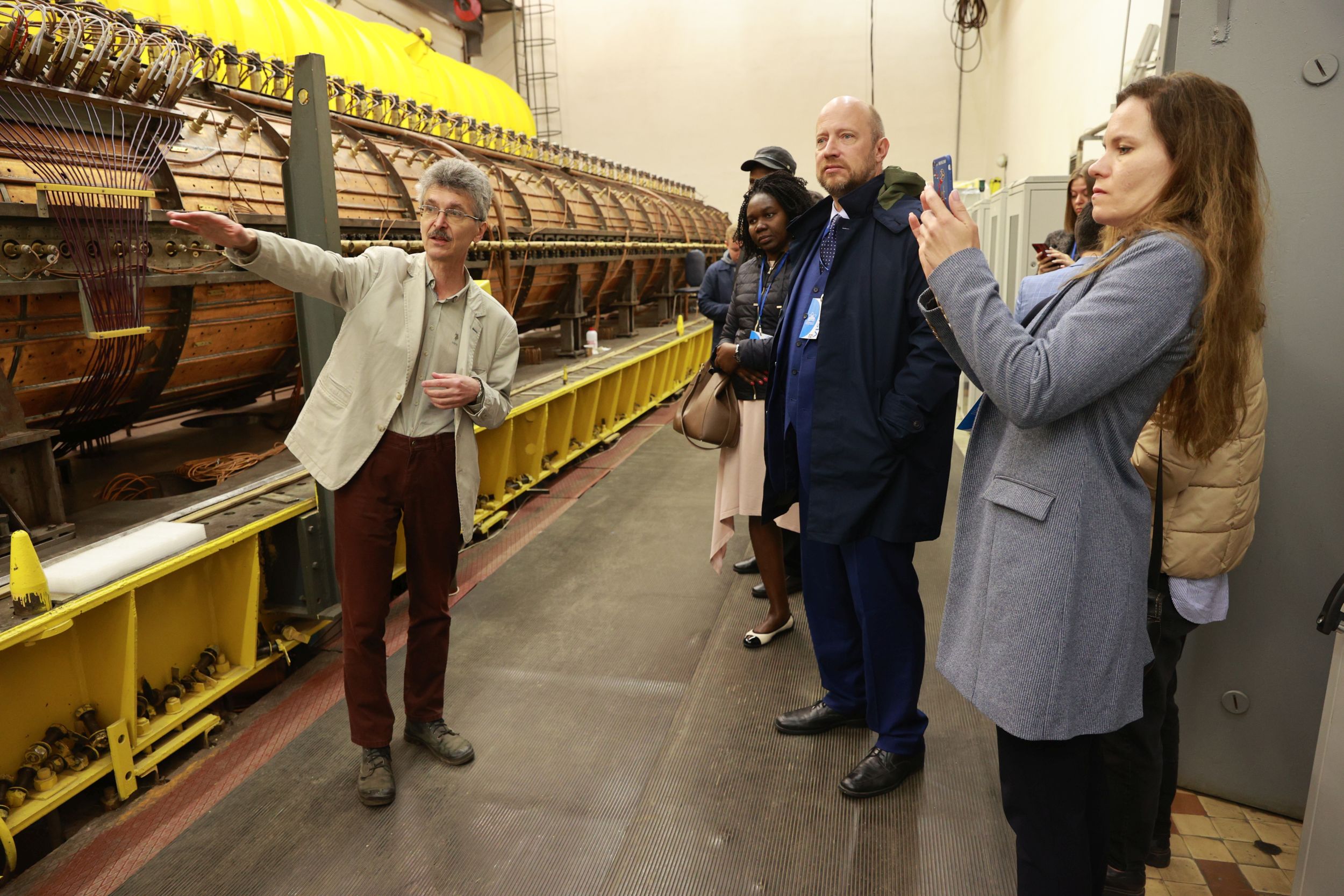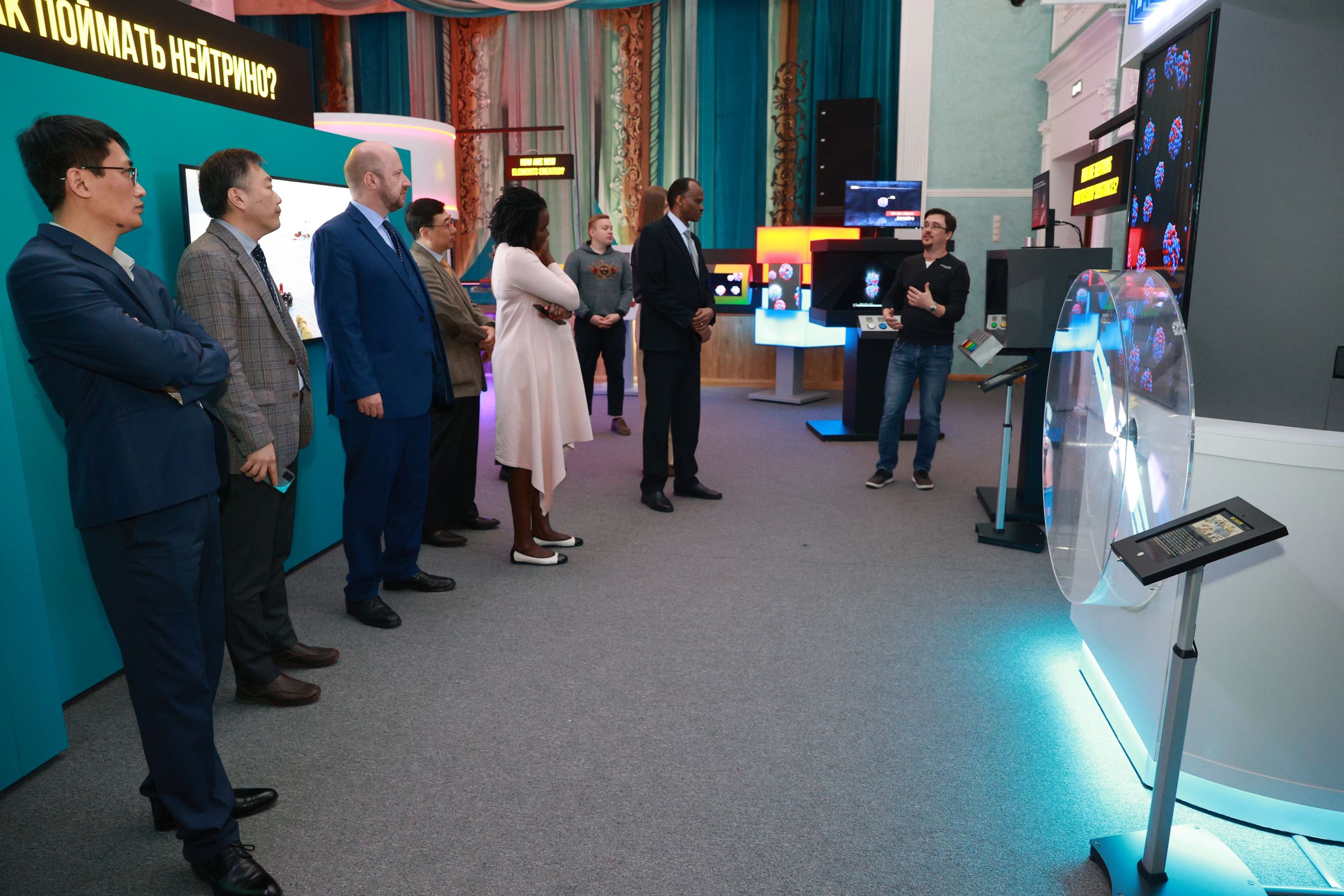JINR: science diplomacy in action
News, 28 May 2022
On 26 – 27 May 2022, a visit of science diplomats from Brazil, Korea, Vietnam, and Uganda took place. In addition, the delegation of the Analytical Centre for Innovations in Science, Technology, and Education took part in the visit. During the two-day visit, JINR guests got acquainted with the international scientific centre in Dubna.
The visit became another event on the implementation of the provisions of the Sofia Declaration of JINR, in particular, on strengthening the role of JINR as a unique integration platform for the development of modern tools of the Member States and partners in the fields of science diplomacy, scientific enlightenment, and intercultural exchange.
Welcoming guests, JINR Director Grigory Trubnikov noted the relevance of the problems of science diplomacy in the light of the current situation. “A session of the JINR Committee of Plenipotentiaries has been held recently, the main result of which is the adoption of a strategy for the next seven-year period. At the same time, the Institute has confirmed its position to adhere to its main mission: conducting research at the forefront of science. Our entire multinational family continues to work together despite the current difficult times in geopolitical terms,” the JINR Director highlighted.
In his turn, Andre Joao Ripple, Head of the Department of Science, Technology and Innovation of the Embassy of Brazil in Russia noted, “The Institute’s motto “Science brings nations together” is as relevant as never before. In the current conditions, science and science diplomacy are becoming particularly important.” He also added that the meeting at the Institute was an opportunity for Brazil to intensify cooperation with JINR in a number of areas. The starting point for this could be a meeting to discuss the organization of academic exchanges.
The development of international cooperation was continued by Rutazindwa M. Gideon, Chargé d’affaires of the Embassy of Uganda. “The African region is aimed at active development in the fields of nuclear physics. Having an advanced scientific infrastructure, JINR can play an important role in this issue, having effective scientific cooperation with South Africa, as well as relying on a solid foundation of developed ties between the Russian Federation and African countries,” he said. The diplomat also expressed special interest in JINR expertise in the fields of nuclear medicine.
“I am well acquainted with the Institute and can say that it is developing extremely intensively, facilities are being improved, bright results are appearing. Welcoming the results of the last CP JINR session, I believe that Vietnam should not just maintain cooperation with JINR, but actively expand it,” Ahn Nguyễn Ngọc, the First Secretary of the Socialist Republic of Vietnam, the Representative of the Ministry of Science and Technology of Vietnam, highlighted. Informing participants about the status of the Vietnam-JINR cooperation, he expressed gratitude for the broad and active support that young Vietnamese scientists working at JINR receive.
Representatives of the Republic of Korea emphasised the unique character of JINR as an international scientific centre and noted the interest in developing cooperation between Korean organizations and Dubna. As a possible further step in this direction, it was proposed to strengthen the work on informing the leading Korean research centres about the possibilities of joint work with JINR.
Guests were invited to join the Dubna Green Chamber informal club for a substantive discussion of effective tools of science diplomacy.
During the visit, the guests also got acquainted with the NICA megascience project and visited the production of superconducting magnets, as well as the JINR Basic Facilities exhibition.
